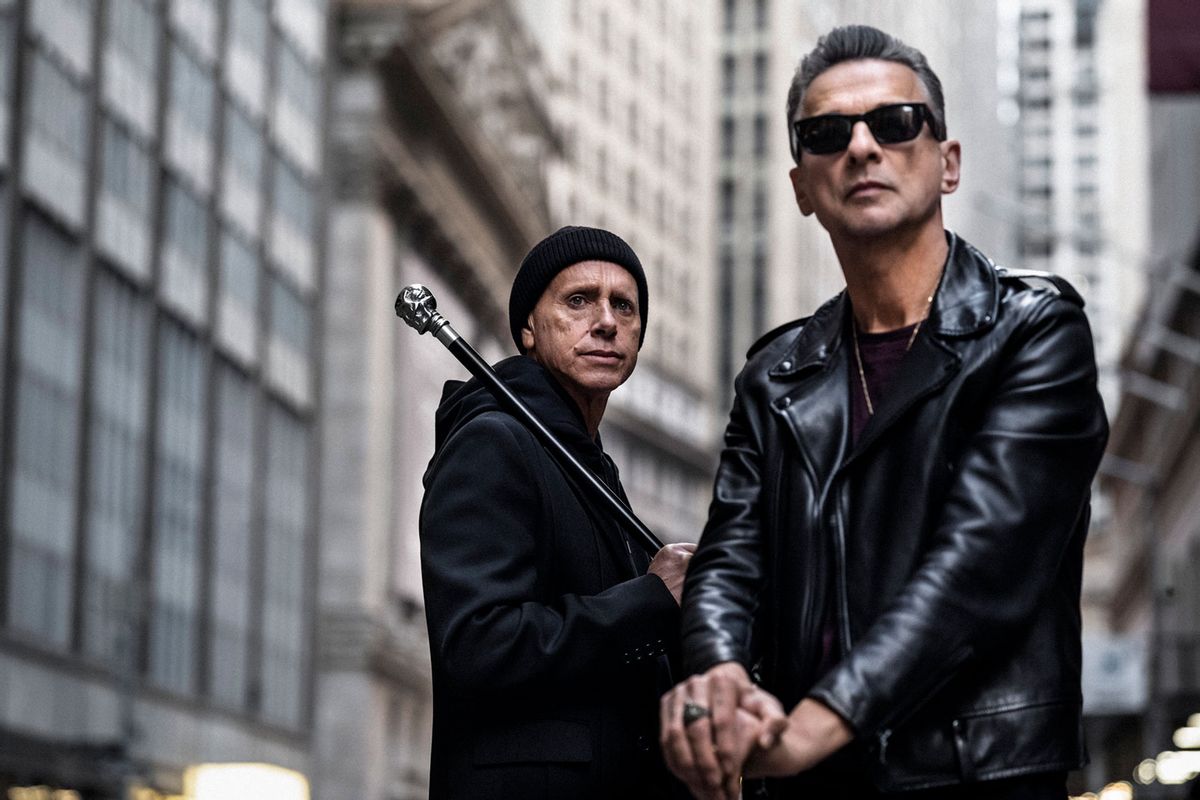Depeche Mode's "Memento Mori," the 15th studio album by the synth band turned rock 'n' roll titans, makes for a powerful epitaph for longtime bandmate Andy "Fletch" Fletcher. Last May, Fletch died at age 60 from an aortic aneurism, and his untimely death has left fellow musicians Dave Gahan and Martin L. Gore understandably reeling from his loss.
The recording sessions for "Memento Mori," which, in translation, connotes death's inevitability, had commenced back in late 2019, well before Fletch's death. As a band, Depeche Mode has long worn its fascinations with death, spirituality and sexuality on its collective sleeve. But even still, "Memento Mori" will undoubtedly take its place as the post-Fletch LP among the group's adherents. As Gore recently commented to Live Nation Entertainment, "We started work on this project early in the pandemic, and its themes were directly inspired by that time. After Fletch's passing, we decided to continue as we're sure this is what he would have wanted, and that has really given the project an extra level of meaning."
Depeche Mode, a band that was founded back in 1980, has legions of fans now. Even more than 40 years later, the group still embarks upon largely sold-out stadium tours, putting them in select company, by any measure. In the UK, all their album releases have registered top 10 showings, a feat that they have duplicated in the U.S. since the mega-selling "Violator" LP in 1990.
Depeche Mode recently teased the upcoming release of "Memento Mori" with "Ghosts Again," which has already notched a U.S. dance hit for its smoldering take on the fleeting qualities of time and the illusory nature of death, that place where "everybody says goodbye."
Watch the official video for "Ghosts Again":
Gore and the world's longest-charting '80s synth band dare us, as always, to suck the marrow out of life (and death) along the way.
"Memento Mori" certainly continues in this vein, albeit with moments of intense drama in comparison to the smooth chill at the heart of "Ghosts Again." Much like "Songs of Faith and Devotion" (1993), Depeche Mode's latest album takes the form of a song cycle. With "Memento Mori," the group's latest compositions, in their own words, run "the gamut from paranoia and obsession to catharsis and joy." The result is a surprising interpretation of death as both a perpetual, terror-inducing challenge to the existence of our corporeal selves, as well as acknowledging that awareness of mortality has the power to enrich our lives through the act of living deeply.
In "Soul with Me," the album's finest track, Gore muses that "I'm heading for the ever after / Leaving my problems and the world's disasters." In the end, he reminds us that if we have to die—and nature dictates that we must—we might as well gain something ethereal out of the experience. Singing that "I'm going where the angels fly / And I'm taking my soul with me," Gore and the world's longest-charting '80s synth band dare us, as always, to suck the marrow out of life (and death) along the way.
Read more
album reviews from Kenneth Womack



Shares